US cannot have it both ways at JCPOA revival talks: Iran FM
Iranian Foreign Minister Hossein Amir-Abdollahian says Washington’s unilateral demands at the high-profile negotiations to revive the 2015 Iran deal are in contradiction with its claims that it sincerely seeks an agreement.
Amir-Abdollahian wrote in a tweet on Tuesday night that Iran remains ready to negotiate a strong and durable agreement, and it is now up to the US to make a political decision on whether it is willing to honor the officially-called Joint Comprehensive Plan of Action (JCPOA).
He made the comments after a phone conversation with European Union foreign policy chief Josep Borrell.
He further said that an agreement is possible “only based on mutual understanding and interests.”
Had a call w @JosepBorrellF earlier tonight.
— H.Amirabdollahian امیرعبداللهیان (@Amirabdolahian) July 5, 2022
Agreement is possible only based on mutual understanding & interests.
We remain ready to negotiate a strong & durable agreement.
US must decide if it wants a deal or insists on sticking to its unilateral demands. Mutually exclusive.
Iran and the US attended indirect talks in Doha last week, days after Borrell visited Tehran seeking to break an impasse in the multilateral talks, which had resulted in a months-long pause.
The talks initially began in the Austrian capital, Vienna, in April 2021 with the aim of bringing the US back into the JCPOA and removing its unilateral sanctions against the Islamic Republic.
Tehran has blamed Washington for indecisiveness and a lack of initiative on numerous occasions, the latest of which has been in the aftermath of the Doha talks.
“We believe that repeating previous stances should not replace political initiatives,” Amir-Abdollahian said on Sunday, in a telephone conversation with his French counterpart, Catherine Colonna.
US needs to take ‘a more forthcoming position’: Russia
Meanwhile, Russia’s lead negotiator at the talks, Mikhail Ulyanov, reacted to Amir-Abdollahian’s latest tweet, urging the US to take a “more forthcoming position” at the talks.
“It is high time for the US to take a more forthcoming position in the course of the #ViennaTalks if #Washington is really committed to the restoration of the #JCPOA,” he said via his Twitter account.
It is high time for the US to take a more forthcoming position in the course of the #ViennaTalks if #Washington is really committed to the restoration of the #JCPOA. https://t.co/nIWQar49Wf
— Mikhail Ulyanov (@Amb_Ulyanov) July 5, 2022
EU chief: Decisions are needed now
Borrell also referred to his phone conversation with Amir-Abdollahian, stressing that “decisions are needed now” if the sides want to conclude an agreement.
“This is still possible, but the political space to revive the #JCPOA may narrow soon,” he tweeted.
Spoke again with Iranian Foreign Minister @Amirabdolahian.
— Josep Borrell Fontelles (@JosepBorrellF) July 5, 2022
If we want to conclude an agreement, decisions are needed now.
This is still possible, but the political space to revive the #JCPOA may narrow soon.
There have been renewed tensions after the Doha talks, with both Tehran and Washington accusing each other of declining to make final decisions.
Doha talks were ‘a wasted occasion’: US
US special envoy for Iran, Robert Malley, said the latest indirect negotiations with Iran were “more than a little bit of a wasted occasion.”
“The party that has not said yes is Iran,” Malley claimed in an interview with NPR published on Tuesday. “The party that needs to provide an answer now is Iran. And so if they were not prepared to do so, it’s unclear why they were prepared to go to Doha.”
He also criticized the administration of former US president Donald Trump for “recklessly [deciding] to withdraw from a deal that was working.”
Trump withdrew the US from the JCPOA in May 2018, as he declared a new, more confrontational policy toward Iran, which he called the “maximum pressure” policy.
Iranian negotiators, throughout the course of the talks, have underscored the need to undo that policy and remove all the sanctions imposed on their country, arguing that they are in blatant violation of the JCPOA.
US State Department spokesman Ned Price also echoed Malley’s remarks, but he also went on to claim that Iran has “consistently introduced extraneous demands, demands that – or issues that – go beyond the four walls of the JCPOA.”
“To introduce anything that goes beyond the narrow confines of the JCPOA suggests a lack of seriousness, suggests a lack of commitment. And that, unfortunately, is what the team saw once again in Doha,” Price told a press briefing on Tuesday.
US needs to put forth ‘genuine initiative’: Iranian official
Meanwhile, an Iranian official told the Al Jazeera news channel that what the US calls Iran’s demands in the talks are part of the country’s undeniable rights.
The US must put forth a genuine initiative in order to get out of the current stalemate in talks but it instead criticizes initiatives by the other side, the unnamed source said.
The official further said Iran saw no change in the US approach regarding Tehran’s interests under the Iran deal.
Iran is ready for a strong agreement but this would depend on a serious administration in the US, the source added.
IAEA chief: Diplomatic efforts ‘proving challenging’
In relevant comments on the fate of the JCPOA, the head of the International Atomic Energy Agency (IAEA) suggested that the US withdrawal from the pact was the reason behind the current crisis over Iran’s nuclear program.
“The US withdrew from the JCPOA in May 2018. In response, one year later, step by step, Iran began to abandon all its nuclear-related commitments under the deal. Its stockpile of enriched uranium rose significantly; it enriched up to 20% U-235 and then to 60% - the only State without nuclear weapons to enrich to such a level; it developed more sophisticated centrifuges; and, most recently, it asked us to remove our JCPOA-related surveillance cameras,” Rafael Grossi explained.
He lamented that the diplomatic efforts to resurrect the deal are “proving challenging.”
Grossi voiced concerns that Iran’s nuclear advances, which came in response to the US withdrawal from the JCPOA, may affect other regional countries’ decisions and prompt them to actively seek nuclear weapons.
“The negotiations around Iran’s nuclear program are not happening in a vacuum and the context is important,” he said.
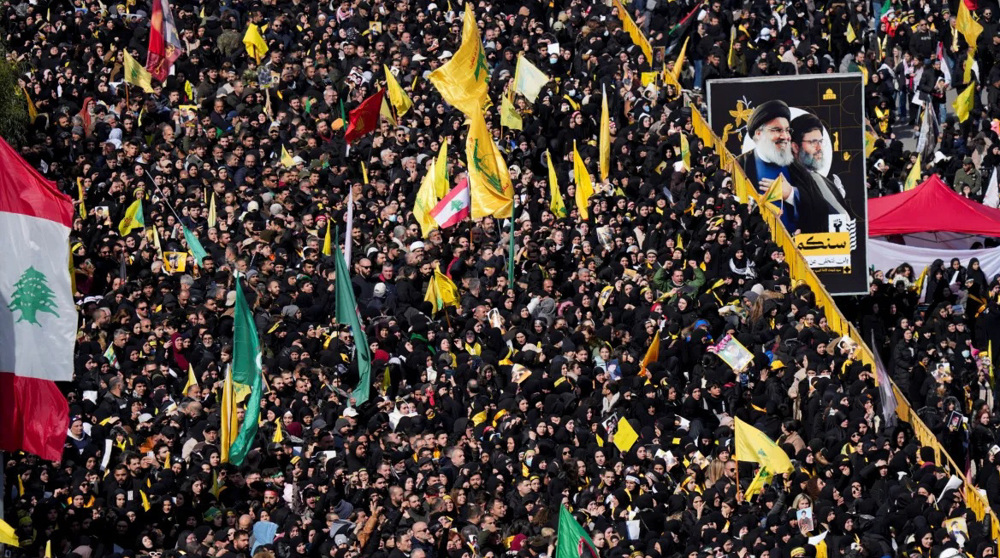
Hezbollah's display of power proved resistance cannot be eliminated: Iran parl. speaker
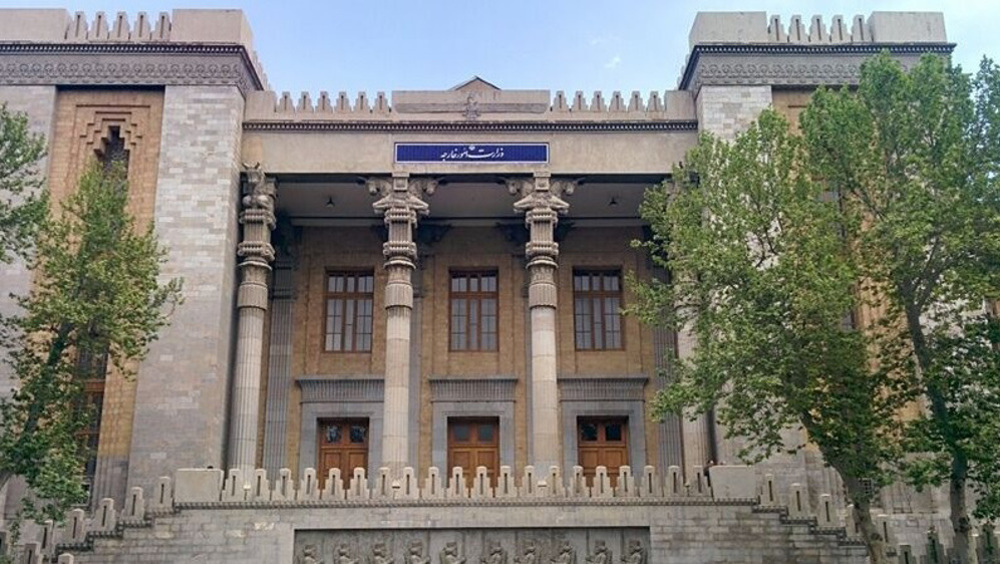
Iran summons Polish envoy over 'baseless, biased' drone claims
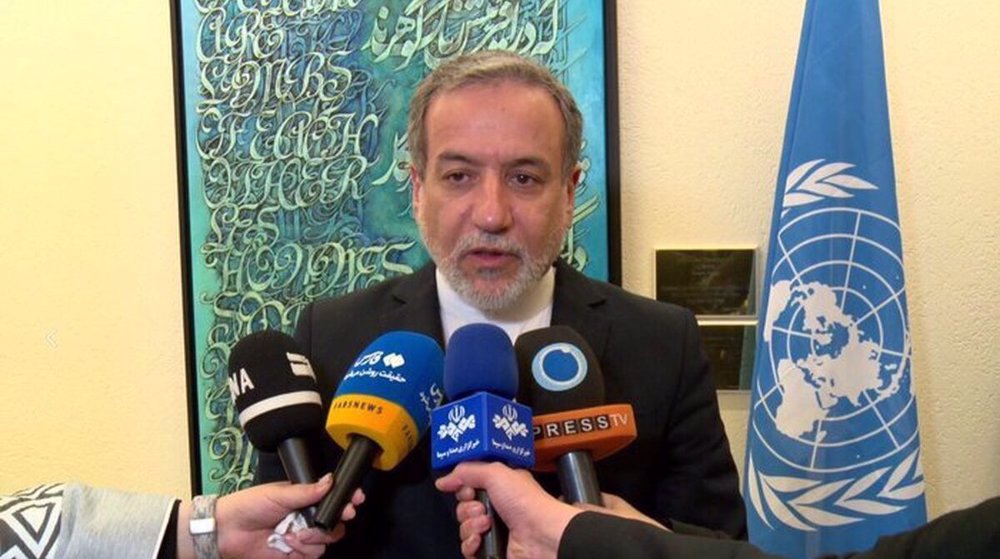
‘Misguided policies’: Araghchi says unjust sanctions inflict suffering on innocent Iranians
Hezbollah's display of power proved resistance cannot be eliminated: Iran parl. speaker
Israel escalates West Bank raids as official says regime seeking to complete Gaza genocide
Australian senator smeared by anti-Iran groups for saying Iranian women 'have a voice'
Palestinian man dies in Israeli prison as Foreign Ministry urges intl. probe into regime’s crimes
Putin says not opposed to Europeans’ involvement in Ukraine talks
VIDEO | Iranian Kurdish protesters demand European action against PKK, PJAK terror
VIDEO | Israel expands offensive in northern West Bank, deploys tanks to Jenin
VIDEO | Spaniards fill streets of Cádiz in solidarity with Palestine


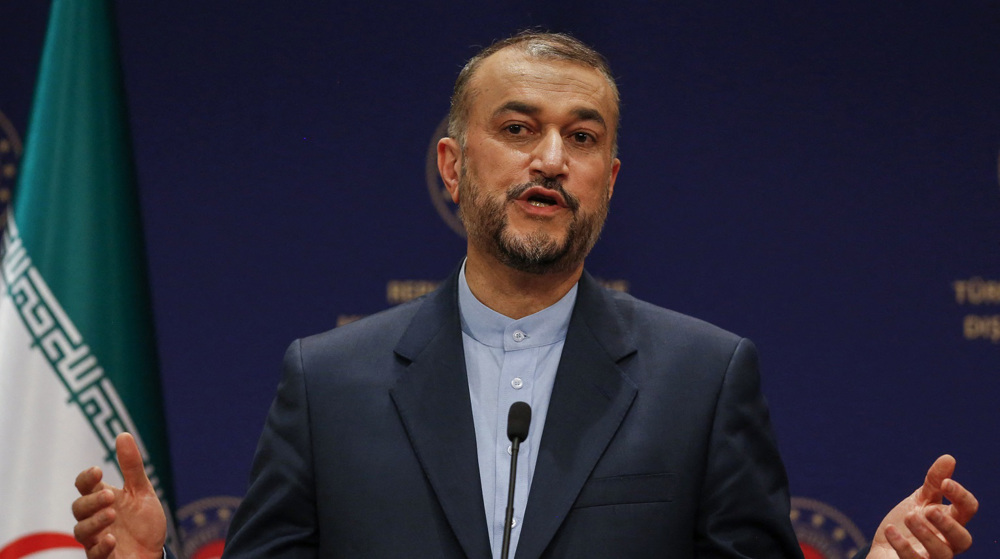
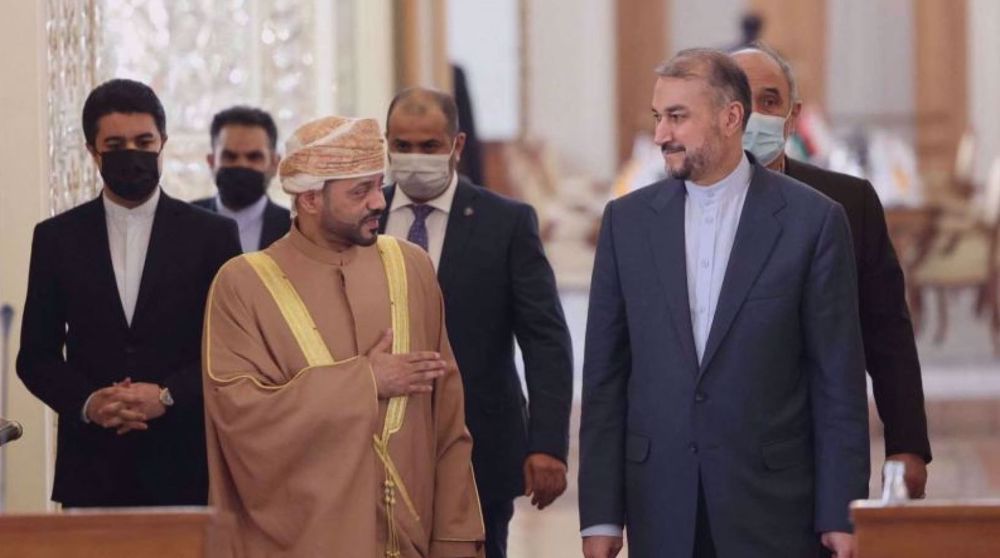
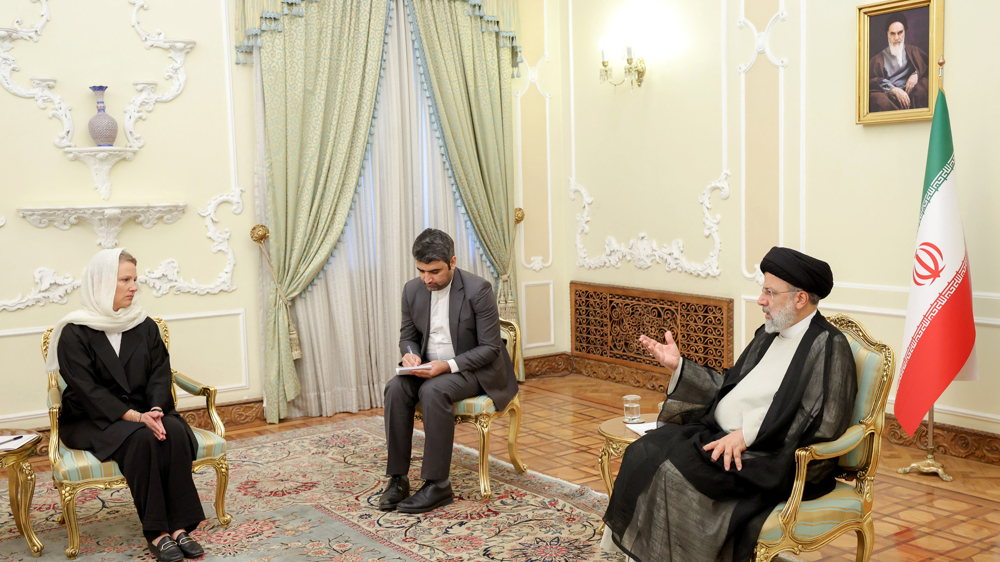



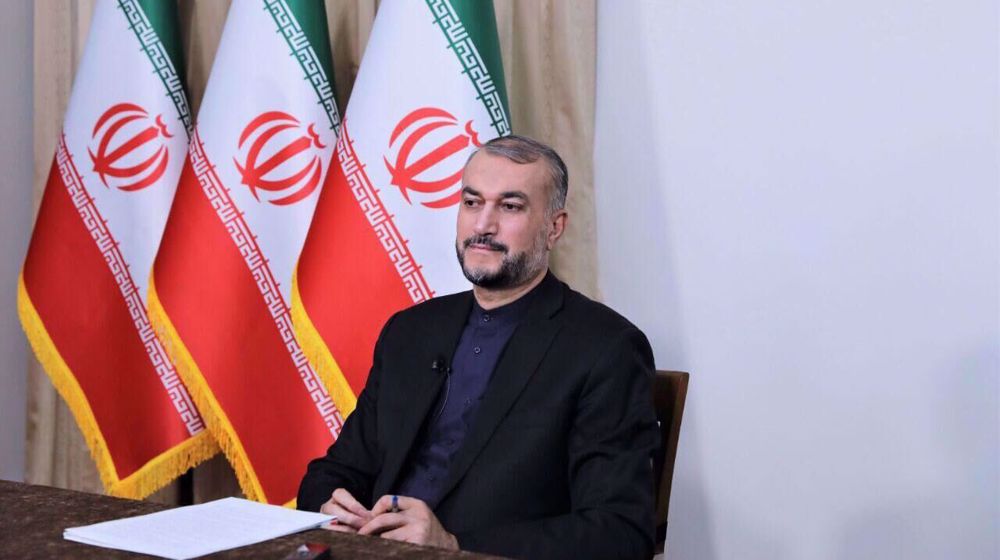
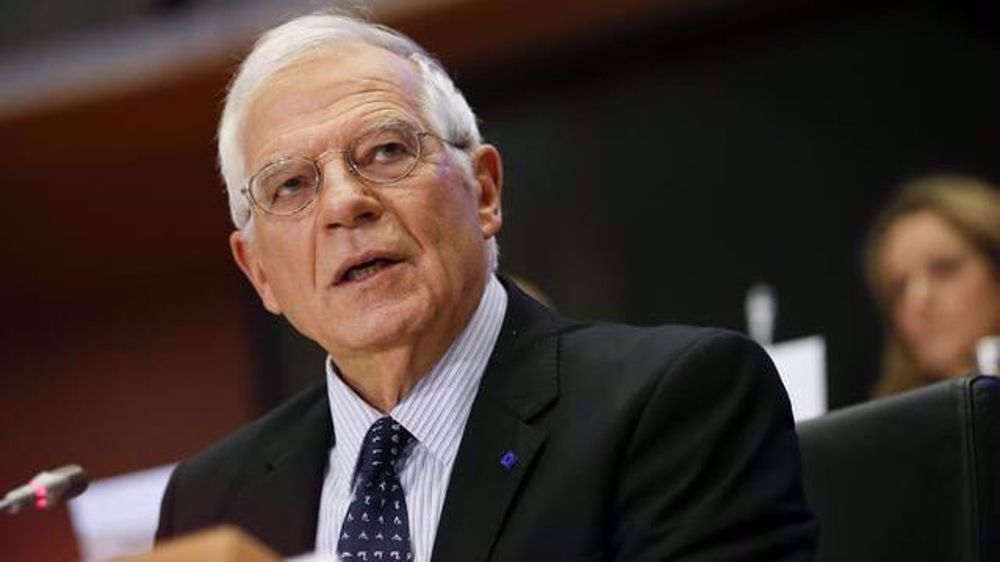
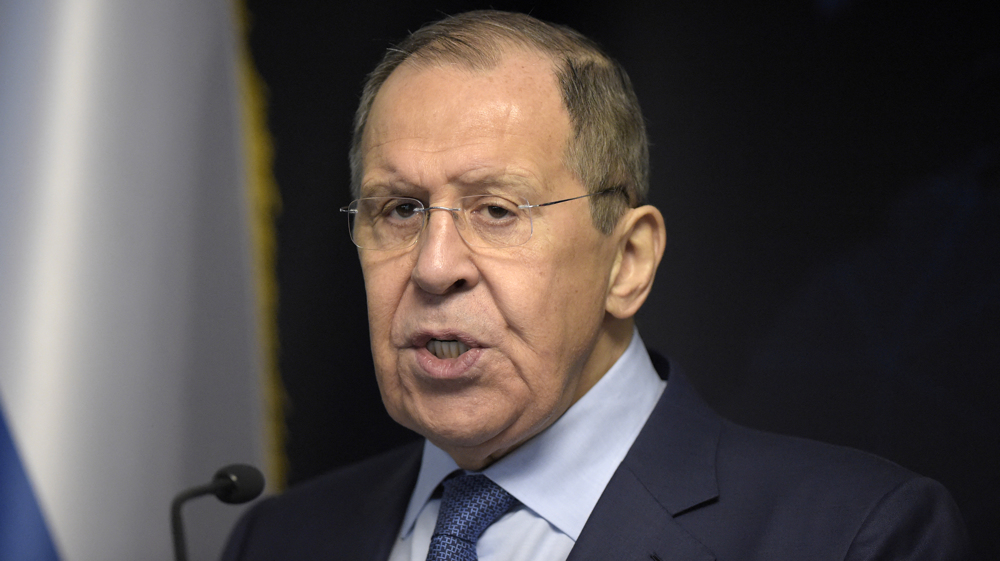
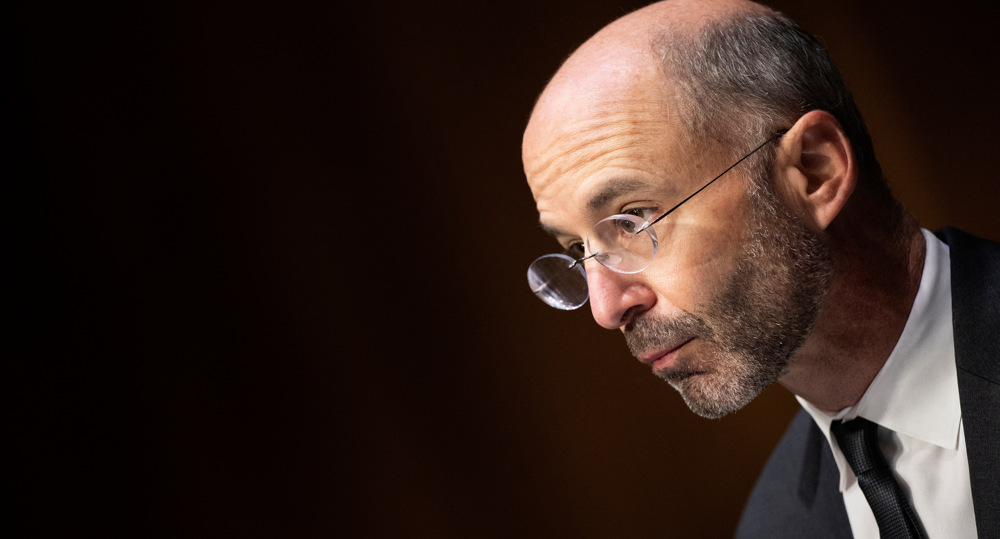

 This makes it easy to access the Press TV website
This makes it easy to access the Press TV website